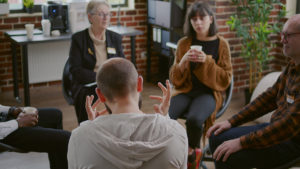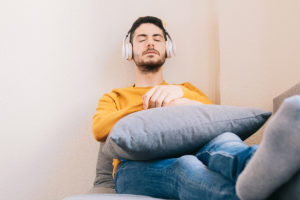Almost all healthcare professionals concur that therapy sessions are crucial to a full recovery. It has helped people grasp the underlying causes of their addiction better. While also enabling them to address their past traumas.
Group therapy has been demonstrated to be as beneficial as individual therapy for many conditions like anxiety and depression. It offers people a compelling means of discovering more about themselves and their deep connections with others.
It might be difficult and frightening to build close relationships with strangers. However, group members can have a therapeutic and transformative encounter when they succeed.
8 Tips to Get the Most out of Group Therapy
Group therapy can be a vital addition for individuals in inpatient rehab. Most of the time, people are reluctant to open up to a crowd of strangers about their darkest moments. They either emotionally shut down or become resistant to the group treatment procedure as a result of the fear.
But with these easy tips, group therapy can be both enjoyable and beneficial.
1. Intent to be open
Indeed, the most important component of group therapy is openness. Being open and honest about one’s emotions in front of a group might be difficult for some people. However, people must understand that the more they contribute to a group, the more they stand to gain from it. Therefore, trying to convey ideas in a group session with great openness is always advised.
Openness is vital for many reasons. For instance, honest people can:
- Acquire a more profound comprehension of their feelings.
- Develop a better understanding of their emotional lives.
- They can recognize the positive side of their feelings and defend the spots where they have been injured out of emotions.
With openness, people find it easy to express their unique emotions and thoughts as they develop during a group session. These people become more connected to themselves and others. This happens as they claim time to speak and get more involved in the activity of group therapy.
2. Give effective feedback
One of the most crucial skills in strengthening any connection is the ability to provide feedback. When someone in the group shares something personal, always try to console them.
Patients attending group therapy should be forthright, sincere, and precise in their responses. If possible, always aim at providing suitable examples. During the occasion, try to share both positive and negative feedback promptly.
3. Consider feedback from others.
Accepting feedback forms one of the challenging aspects of group therapy, even though it is equally important as giving feedback. This is especially true for people who feel that they are being personally criticized when they receive any feedback. The best way to manage is by avoiding getting defensive while trying to handle such emotions constructively.
For some people, if the feedback negatively affects them, they admit to their reactions. And also explain that it is something helpless to prevent at that time. By doing so, they can get clarifications from the group members.
Generally, it is a good idea to acknowledge feedback and appreciate that the group’s opinions have positive intent.
4. Learn to express genuine feelings
Studies have demonstrated that emotions significantly impact human cognitive functions, such as attention, memory, and problem-solving. Therefore, it suggests that expressing emotion will be of considerably greater significance than the exposition of ideas. The people who benefit from group therapy most are willing to take the chance of being vulnerable with others.
5. Be ready to share ideas and secrets.
People have the right to decide what, how much, and when they share with the group. However, they must understand sharing can help them get the most out of the group. And this is only true when they decide to share more personal aspects about themselves and their experiences.
They open up to others about what is going through their minds throughout the process. The idea is to follow the group rules since it encourages more self-expression.
6. Avoid storytelling
In most circumstances, people tend to prepare what they will deliver in advance and mostly depend on stories. When it comes to a group session, this may not be appropriate. This is since stories are normally perceived to convey certain impressions and images.
For instance, some people use stories to avoid being sincere or dealing with complicated feelings. It is advisable to be open and receptive to group session activities.
7. Be keen on the dynamics of the group.
Group sessions have much to learn from by just focusing on their dynamics. For example, a group may discuss things tailored to the interests of various participants to help them pay attention and participate. They gain more knowledge about the group’s effective communicators and individuals to steer clear of or toward. These hone their skills and aid in a deeper understanding of their position.
8. Avoid advising people
When group members disclose their issues, offering counsel could be a common idea. However, refraining is a wiser action to prevent aggravating the problem. Not everyone responds favorably to advise. Moreover, it might not be what they were expecting to hear.
A great strategy is to pay attention and ask pertinent questions. Make an effort to comprehend what they are saying and how they feel. Only advise when someone asks for it; most people want to feel heard in such circumstances.
The Lowdown
Most people prefer individual therapy to group therapy. This is because they find it more challenging to open up to a large group of unfamiliar people. Even though that might be the case, there are several tips to making the most of any group session.
Group therapy needs individuals to be open and able to give and accept feedback. With all these tips, group participants can have a therapeutic and transformative experience.
At Bellagio RTC, we have a team of compassionate experts ready to provide patients with a supportive and individualized treatment program. Our services include individual therapy, group therapy, and clinically-supervised detox to give patients full recovery. Feel free to contact us today to learn more about our services.




